truly new is support for Apple Pencil, the sleek stylus that formerly only played nice with the iPad Pro. But never doubt that the Pencil support marks a bold move on Apple’s part. Combined with the new chip, the formerly capable iPad is transformed into something that’s now a serviceable substitute for an iPad Pro—for a mere $329 ($299 if you're shopping for a school, $309 if you're a student, teacher, or faculty shopping on Apple's Education Store).
Some will find Apple Pencil support a transformative experience, and if you’ve been looking to upgrade from an iPad that predates the iPad Air 2, this is a device that will make you glad you waited.
New iPad: The more things change
In light of Apple’s marketing of the new iPad to schools, the design feels like an exhortation not to judge a book (or a tablet) by its cover. It reminds us that some things can change for the better despite outward appearances. In some regards, much of what we said about last year’s iPad applies here as well, whether it’s the way the buttons ranging from the volume controls to Touch ID sit in the same spots or the way it offers much the same Wi-Fi and LTE connectivity.
The new iPad weighs about the same as its predecessor, and the same protective cases will fit. It still only has two speakers, compared to the four you get on the iPad Pro. It even sports the same serviceable 8 megapixel 1080p rear camera and the puny 1.2 megapixel 720p front camera, the latter of which seemingly exists only for occasional Skype and FaceTime chats. Were the new iPad judged solely on specs, it’d hardly warrant much attention over last year’s model at all.
New iPad: Pencil pusher
But you shouldn’t judge the new iPad based on its specs. Tim Cook and friends decided to let this scrappy device support the Apple Pencil, although you’ll have to buy it separately. (That also means an extra $100 to the total cost, bringing the 2018’s iPad’s "true" price up to $429.) It may seem like a simple thing, but the magic of the Apple Pencil is that it lets you share much the same experience of using a pricey iPad Pro, but on a lower-priced tablet.
Never mind for a moment that the new iPad doesn’t have some of the best technical goodies found on the iPad Pro, whether it’s the TrueTone technology that adjusts the display to match the light in the room or the iPad Pro’s 4GB of memory. (The 2018 iPad makes do with 2GB.) It even lacks the iPad Pro’s ProMotion tech, which boosts the display refresh rate up from the roughly 60Hz found on a device like this to an impressive 120Hz. That’s important, as it means the newer iPad Pros can better catch the slightest movements of your hands, which makes them more ideal for professional artists.
However, you’re likely not going to notice the difference in everyday use. I’ve been using an Apple Pencil as a writing tool since 2016 on my first-generation 12.9-inch iPad Pro (which also lacked ProMotion), and I almost never felt the Pencil was doing anything but laying down precisely the lines I wanted to see. Thanks to the pressure sensitivity, the way it interprets tilts and angles, and, yes, the overall low latency, the Apple Pencil is the closest you get on a tablet to mimicking the experience of writing with a pencil or pen on a spiral notebook, which is part of the reason Apple wants to see it catch on in schools.
The only real drawback to the new 9.7-inch iPad is that it doesn’t have a laminated display like the iPad Pro, and so you’ll see a visible gap between the display and the glass above it. I found, though, that it barely affects the "feel" of writing, although the extra space makes the sound of the Pencil hitting the glass a bit louder than what you’ll hear on a Pro.
I love the Pencil for the way it lets me scribble out ideas in apps like Notabilityor MyScript Nebo without having to waste a forests’ worth of paper, and it’s incredible for marking up PDFs with highlights and marginal notes. It’s also fantastic for students in that they can use Split View multitasking to open a PDF or other document on one side of the screen and scribble out notes in an app on the right. And, naturally, the Pencil remains a stellar tool for artists, who can use it with fully featured apps like Procreate.
Earlier this year, you’d have to shell out $599 for an iPad Pro at the minimum to get that kind of experience. With the new iPad, though, you get that kind of power for about half the price. For a lot of people, that’s enough to make it a better buy than the Pro. Heck, even I’ve found myself leaving my 12.9-inch iPad Pro behind in favor of this device, and I’m tempted to switch over to it entirely.
New iPad: Performance
The new iPad is still a good buy even if you’re not into the whole "writing with pencils in 2018" bit. That’s because the new iPad also fast.
Last year’s iPad had an impressive A9 chip packed in its casing, but the new version has the A10 Fusion chip we’ve previously seen in the iPhone 7 and 7 Plus. The improvements show up in Geekbench results, with the new iPad scoring 3463 on the single-core CPU test and 5845 on the multi-core test. (That's about the same score you'll get with an iPhone 7 Plus.) Last year's 9.7-inch iPad, however, scored only 2384 on single-core and 4372 on multi-core. That's not too shabby, especially considering that the new 10.5-inch iPad Pro scores 3908 on single-core and 9305 on multi-core.
In the most casual cases you’ll find this only means that apps open ever-so-slightly faster, but I find it sometimes greatly affects game performance. (Let’s admit it: A lot of kids in classrooms are going to be playing games on these things rather than listening to teachers.)
On the new iPad, the popular battle royale shooter Fortnite ran beautifully, complete with the shadows and richly-detailed textures you’d find while playing on a Mac. Playing on last year’s iPad, though, I found the characters and buildings look pixelated and rough, and the shadows and other details were gone. The differences aren’t so jarring on PUBG Mobile, but it’s worth noting that the popular game recommends the "high" settings on the new iPad and only the "medium" on last year’s. If you’re looking for performance, in other words, you’ll want to pick up the new one.
From there on out, it’s basically the same device as last year’s iPad. The screen once again has no anti-glare coating, which means you can basically use your iPad as a mirror when you’re in sunlight. The battery life easily meets the 10 hours Apple claims it reaches, even after I played graphically intensive games and watched a whole movie with the brightness cranked up.
New iPad: What about the children?
Apple sees this iPad as its champion in the fight against Chromebooks in classrooms, and there’s no doubt that it’s an impressive device for the price. I don’t think it’s much of an exaggeration to claim that it’s the only tablet that truly matters in the low-end price range, regardless of whether we’re talking about classrooms or playing Candy Crush Saga on the bus.
Sure, on its own, the iPad manages well, and I was even impressed by the display keyboard in landscape mode. But the fact remains that getting the most out of an iPad in the classroom requiring making certain potentially expensive adjustments. Want a physical keyboard? You’ll have to shell out some additional dough for a keyboard case, and then you’ll have to pair it through Bluetooth since the new iPad doesn’t have a Smart Connector for connecting Apple’s Smart Keyboard. Logitech announced a rugged case for students, but it costs $100. For that matter, the budget Logitech Crayon stylus for the iPad that’s also only available to students costs $49.
Once you’re done, you’re looking at around $448 total with school pricing. You can get a Chromebook for around half that, and they almost always come with attached tactile keyboards, mouse supports, ports for attaching peripheral devices, and Google’s educational G Suite that’s based entirely online.
Apple’s approach with its Classroom and Schoolwork apps, though, requires a full commitment to the Apple ecosystem. We’ve already said that we’re optimistic about seeing it in classrooms on account of its emphasis on privacy and quality, but everyday schools might find iPads a tough sell when looking solely at immediate pricing. All the same, keep in mind that iPads will likely hold up better than dirt-cheap Chromebooks over time, which could save school districts a lot of money in the long run.
Bottom line
In our review of last year’s 9.7-inch iPad, we said it was a "better choice than the iPad Pro for a lot of users," and the addition of Apple Pencil support and a faster processor makes that especially true for this year’s model. For $329, you’re getting a stellar tablet that feels as though it’s very capable, although without some quality-of-life features. For a general-purpose tablet for school, business, or pleasure, it currently doesn’t get any better than this.
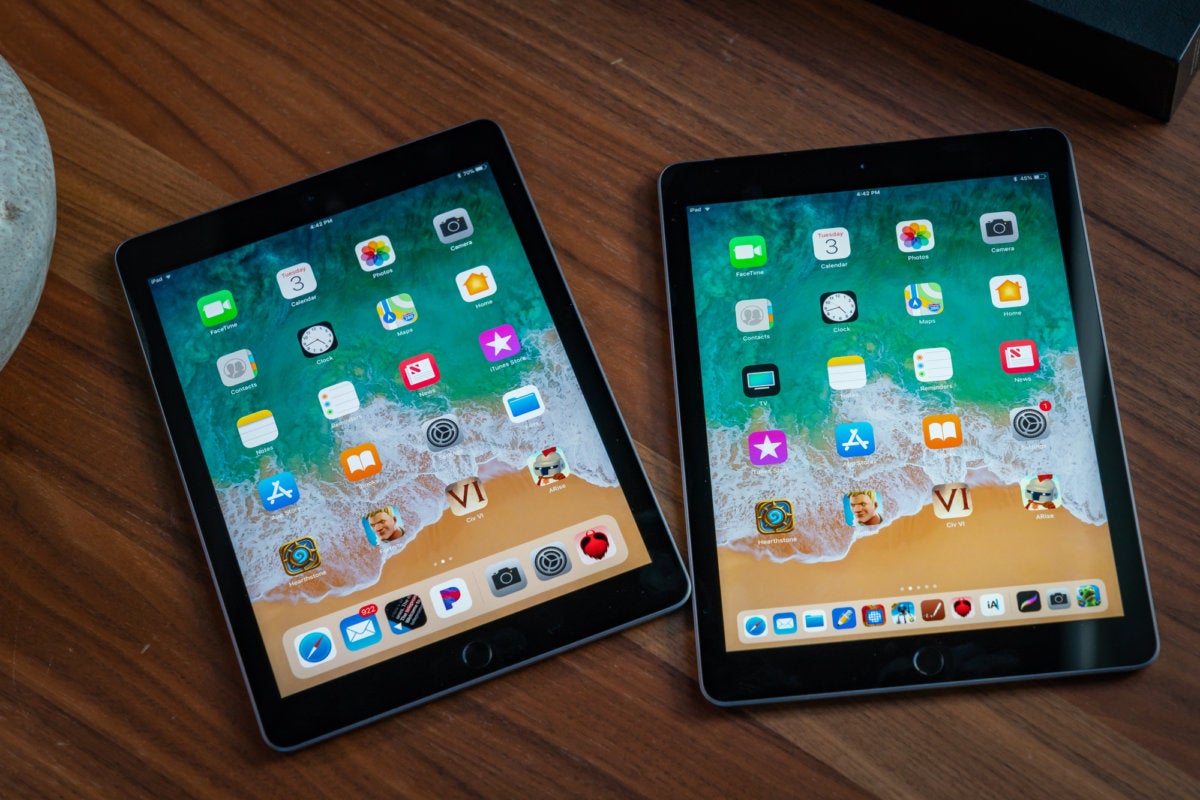 Daniel Masaoka/IDG
Daniel Masaoka/IDG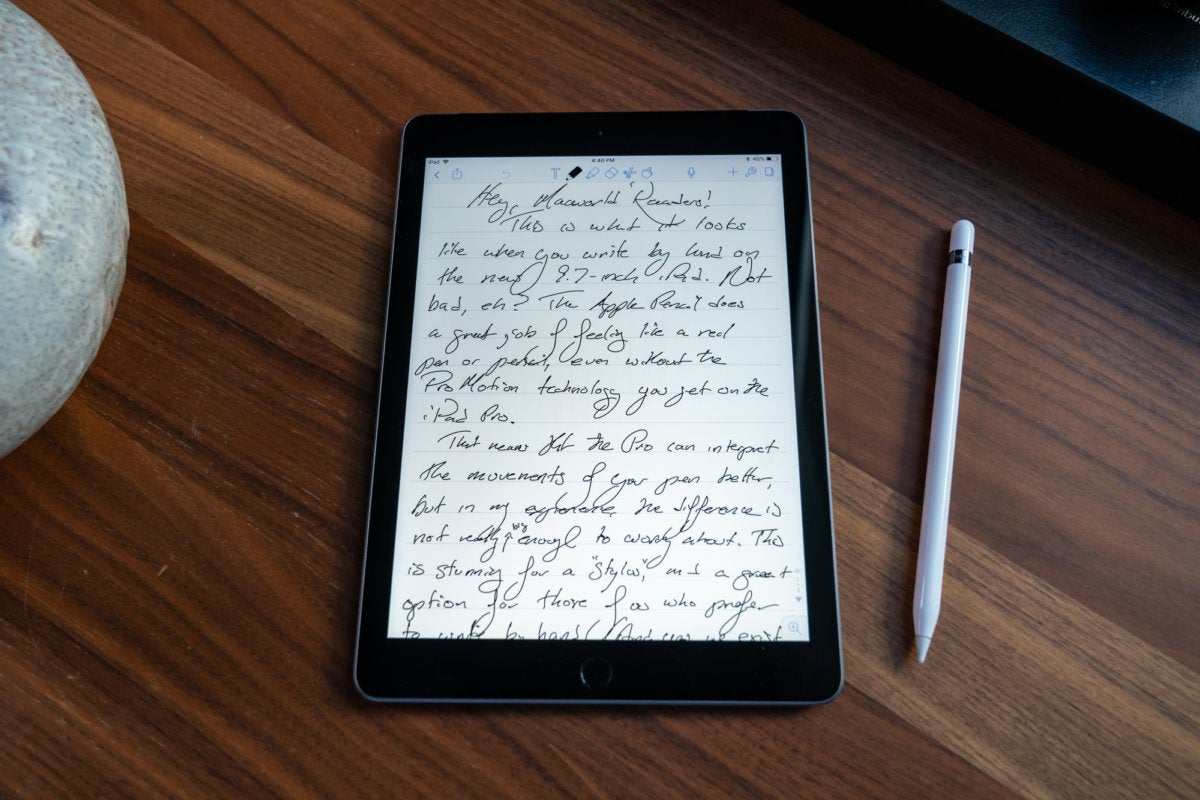 Daniel Masaoka/IDG
Daniel Masaoka/IDG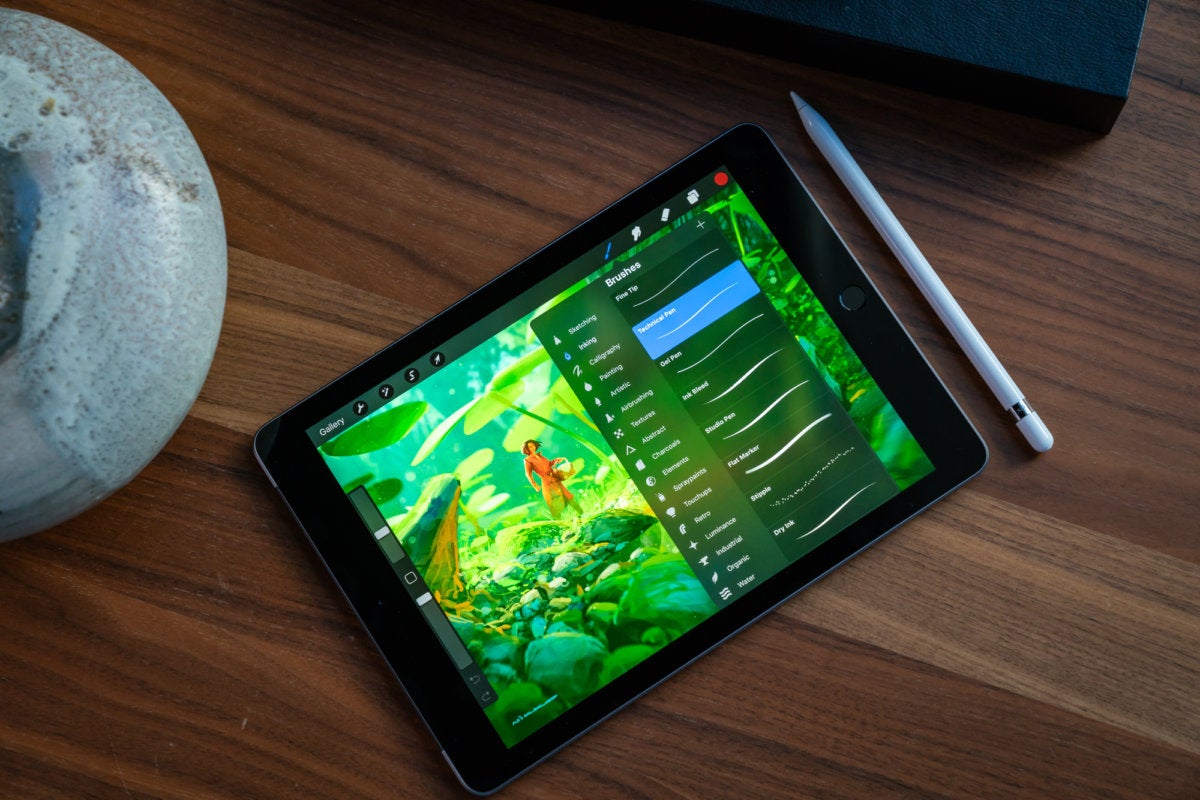 Daniel Masaoka/IDG
Daniel Masaoka/IDG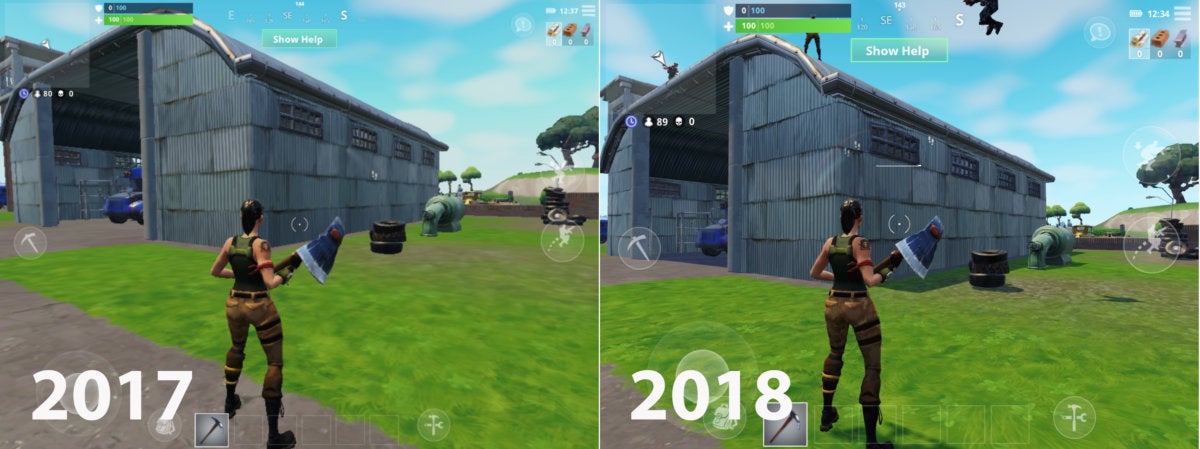
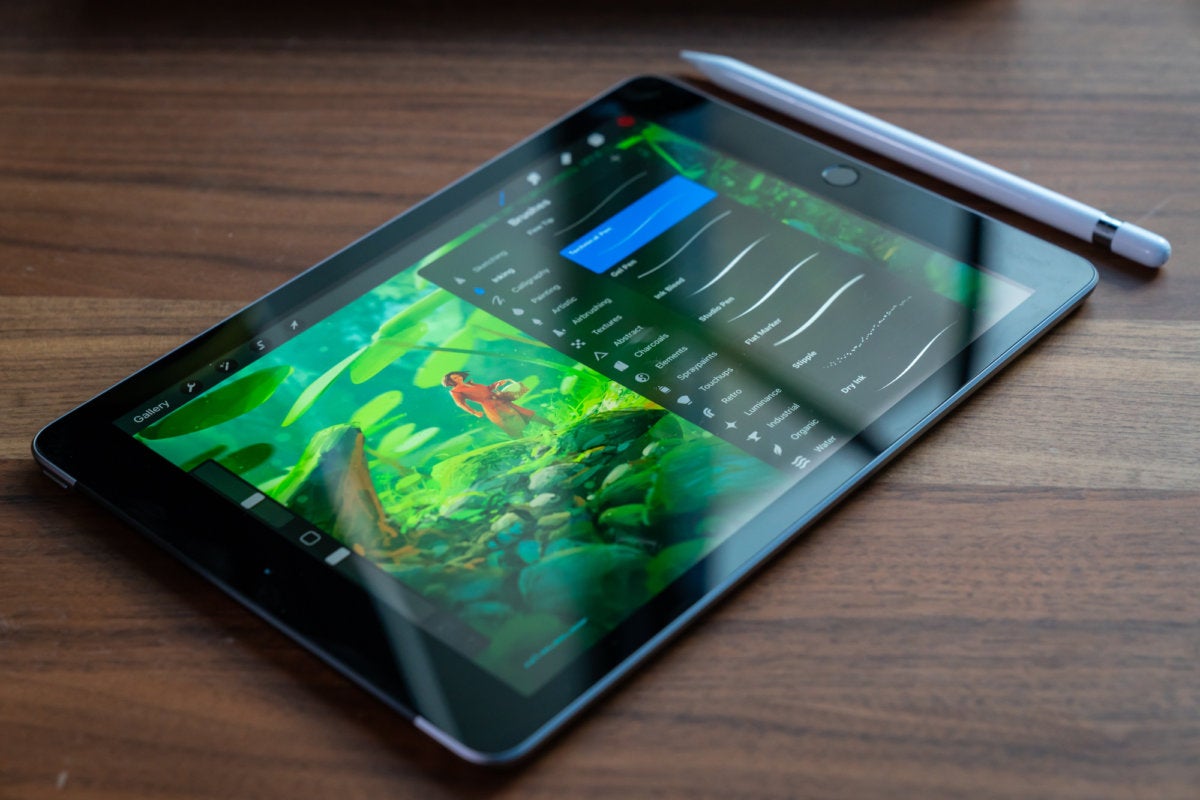 Daniel Masaoka/IDG
Daniel Masaoka/IDG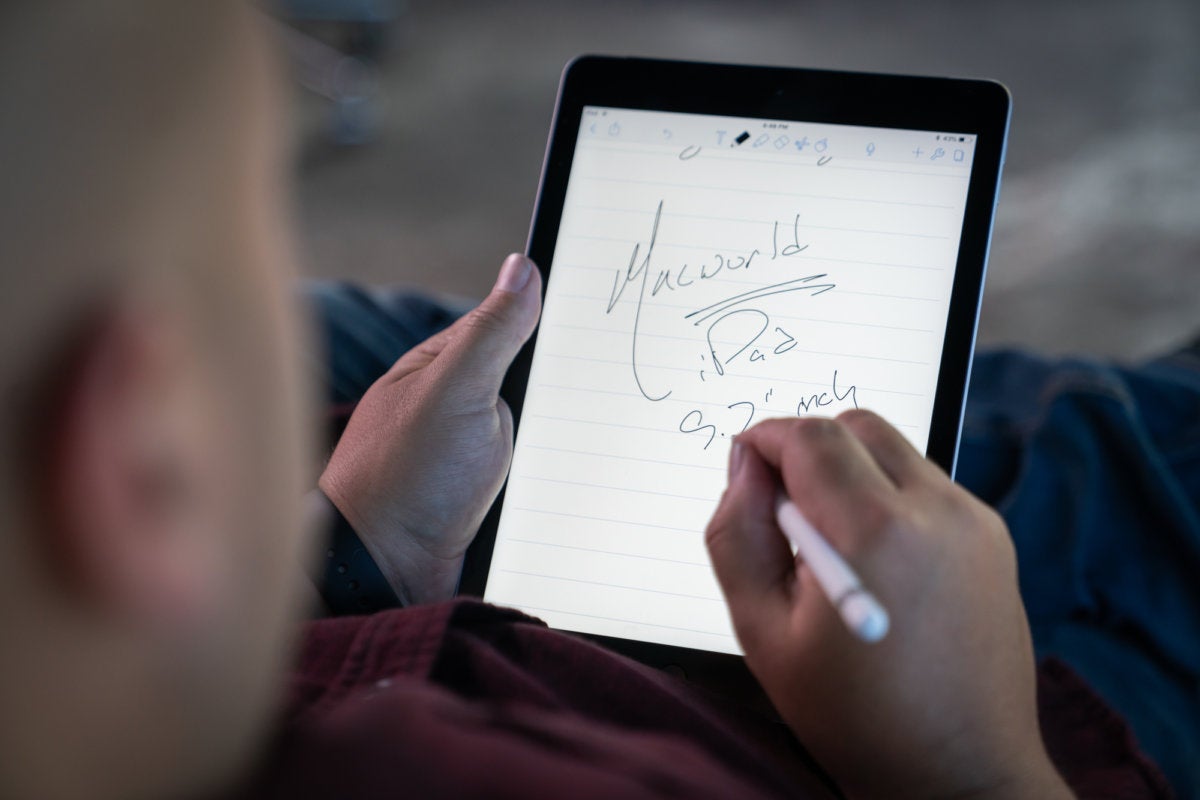 Dan Masaoka/IDG
Dan Masaoka/IDG
No comments:
Post a Comment